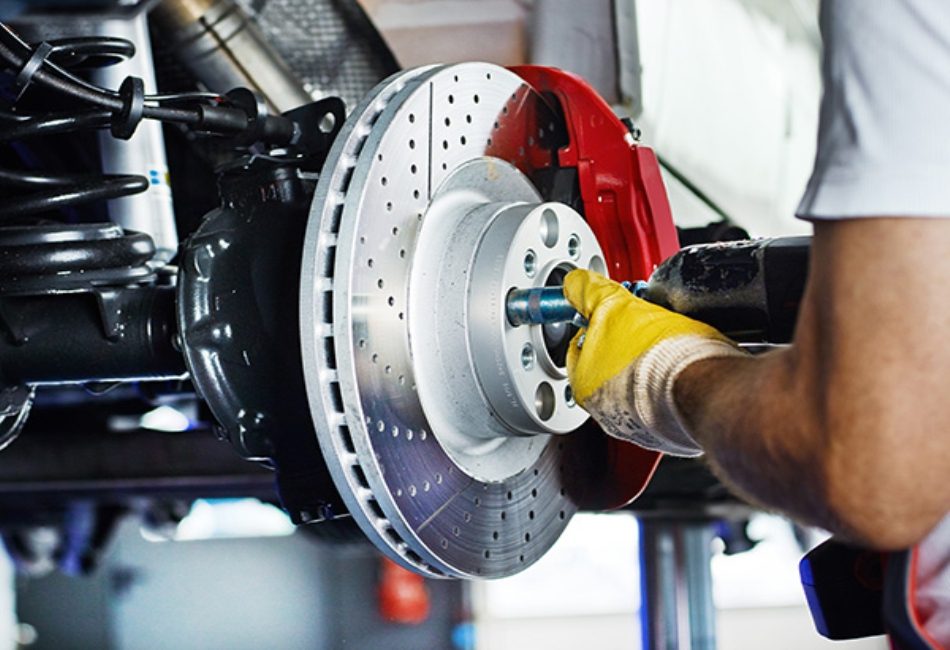Brakes are one of any vehicle’s most important safety components, playing a crucial role in preventing accidents and ensuring a smooth driving experience. Over time, brake components wear down due to constant friction, exposure to varying weather conditions, and everyday driving habits. Regular maintenance helps identify issues before they become major problems, reducing the risk of sudden failures that could lead to accidents or expensive repairs. Neglecting brake maintenance can reduce stopping power, longer braking distances, and increase wear on other vehicle components. A properly maintained brake system ensures better vehicle control, especially in emergencies, and contributes to the overall longevity of the vehicle.
Routine brake inspections from InTown Auto Care allow drivers to detect early warning signs such as squealing noises, vibrations, or a soft brake pedal. Addressing these issues promptly can prevent more extensive damage, saving time and money in the long run. Additionally, brake fluid plays a key role in maintaining braking performance. Over time, brake fluid absorbs moisture, reducing its effectiveness and potentially leading to brake failure. Regular brake fluid replacement ensures consistent performance and protects internal brake components from corrosion. A well-maintained braking system provides peace of mind, knowing the vehicle can respond effectively in various driving conditions. By understanding the importance of brake system maintenance, drivers can take proactive steps to ensure their safety and avoid costly repairs.
Key Maintenance Practices for a Reliable Brake System
Maintaining a reliable brake system involves a combination of routine inspections, timely replacements, and proper driving habits. One of the most effective ways to ensure brake reliability is through regular brake pads and rotor inspections. Brake pads wear down over time, and if they are not replaced promptly, they can cause damage to the rotors, leading to more expensive repairs. Checking the thickness of the brake pads and listening for unusual noises while braking can help determine when a replacement is necessary. If brakes produce a grinding sound, it may indicate metal-to-metal contact, requiring immediate attention.
Another critical aspect of brake maintenance is monitoring brake fluid levels and quality. Brake fluid transfers force from the pedal to the brake components, allowing smooth operation. Over time, the fluid can become moisture-contaminated, leading to reduced braking efficiency. Flushing and replacing the brake fluid at recommended intervals helps maintain proper hydraulic pressure and prevents internal damage. In addition to fluid maintenance, ensuring the brake lines are free from leaks and corrosion is essential for overall braking performance. Any sign of fluid leakage or a spongy brake pedal should be addressed immediately to prevent brake failure.
Proper driving habits also contribute to brake system longevity. Avoiding sudden and harsh braking reduces wear on brake components and prevents overheating. Drivers should also downshift when possible to use engine braking, especially on steep descents, to reduce strain on the brake system. Keeping the vehicle properly aligned and ensuring tires are in good condition can also enhance braking efficiency, as uneven tire wear can cause the vehicle to pull to one side when braking.
By following key maintenance practices, drivers can enhance the reliability of their brake system and prevent expensive repairs. Regular inspections, timely replacements, and mindful driving habits all contribute to the overall safety and performance of the vehicle. A well-maintained brake system ensures smoother braking and extends the lifespan of other vehicle components, making it a crucial aspect of responsible vehicle ownership.
Brake system maintenance is vital to vehicle safety and long-term cost savings. Ensuring that brake pads, rotors, and brake fluid are in good condition prevents sudden failures and enhances overall driving safety. Routine inspections and timely replacements help drivers avoid expensive repairs and maintain confidence in their vehicle’s braking ability. Additionally, adopting proper driving habits can reduce unnecessary wear and extend the life of brake components. By prioritizing brake maintenance, drivers can prevent potential accidents, improve vehicle performance, and save money on costly repairs. Taking proactive steps today can make a significant difference in ensuring a safe and smooth driving experience.
